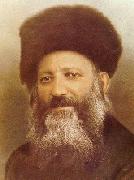What's new! | Mercaz-News list | Shiyurei Torah | Nechmat Rachel
Medallion
 |
Archives
|
Archives  |
Publications |
Donations |
Overseas program & Registration
|
Publications |
Donations |
Overseas program & RegistrationEmail: mercaz@jer1.co.il

To the righteous who find delight in G-d's
pleasantness and tarry constantly in His Temple, the whole of the world - all
thoughts and all feelings - are filled with the Light of G-d and the holiness
of a higher life. Yet the source of the Primary Light springs from the Torah.
"...One who travels on the road while reviewing his studies, and
stops, and says: `How fine is that tree, how fair is that field!' is regarded
as if he had put himself at mortal risk." (Pirkei Avoth 3:9) Even though
he did not actually put himself at mortal risk he is regarded as if he had, if
he has already attained the level of Divine Contemplation. For, after all, the
light of life shines forth from the whole of all the world, but the light of
the essence of life flows from the Torah. And one does not abandon the bold
original of Holiness to take up in its stead a pale copy.
---- HaRav A.Y. Kook, Oroth
HaTorah 9:7
(translated by Rhea Magnes)
COMMENTARY : One of the most fascinating
motifs in Judaism is the relationship of the Jew to the world of Nature.
The ability to seek the Divine Presence in Nature, and to see in the laws of
Nature the glory and the grandeur of G-d's Creation, sets us apart from other
cultures.
Among the great Jewish philosophers who discuss the Creation and
Nature in relation to our spiritual world, is to be found the Rambam. The
Rambam designates Nature as both a source of recognition of the Creator and an
important basic principle in understanding the meaning of the mitzvoth
(commandments). Above all the Rambam sees in man's reflections upon Nature a
means by which the mitzvah of Ahavath HaShem (the Love of G-d)
may be attained. (Hilkhoth Yesodei HaTorah 2)
The question is therefore raised, if a person can be uplifted to
spiritual heights through the contemplation of the world around us, is there
any difference between the spiritual exaltation which is reached through this
means and that reached though the study of Torah? Can not G-d be reached in
both ways? (This point was raised as early as the Rishonim. See,
e.g., R. Avraham ibn Ezra on Ps. 19:8.)
In this brief passage HaRav Kook casts a light upon our
understanding of this subject.
HaRav Kook speaks here of the mishneh in Pirkei
Avoth which seems to warn against bitul Torah (wasting time which
should be spent learning Torah). In this mishneh, he says, it is
possible to see a reference to two spiritual ascents: the first, by who travels
the road of life while reviewing his studies, and ascends higher and higher
through diligent and all absorbing study of the Torah; and the second, by one
who sees the beauty and splendor of the field and the trees, and is able to
discern G-d 's Presence in that same beauty and splendor. But the finer, high
road is that of the Torah, and one should not descend from the level of a
stringent kedushah to take up a lighter task. ----Y.M.
 |
Archives
|
Archives  |
Publications |
Donations |
Overseas program & Registration
|
Publications |
Donations |
Overseas program & RegistrationEmail: mercaz@jer1.co.il
This site designed by Avi Kovacs, and hosted by
![]() Get your own Free Home Page!
Get your own Free Home Page!
Comment's about the design? email me at avik@geocities.com
